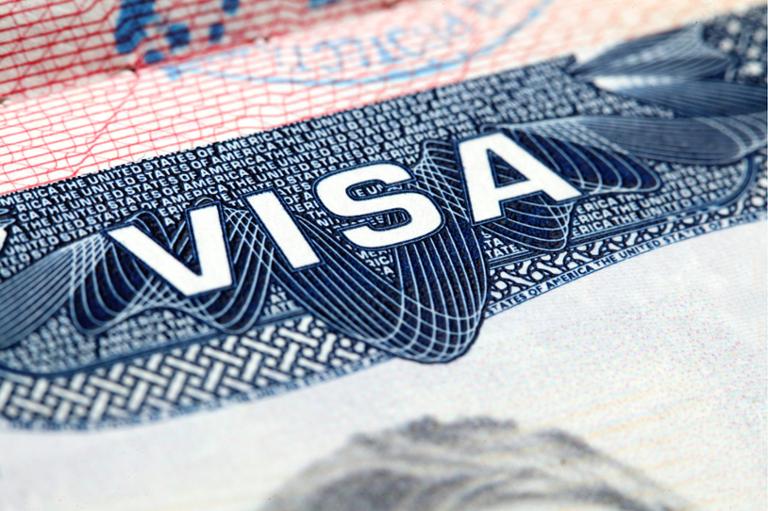
As H-1B application processing opens for 2020 this week, you might wonder why foreign-born workers want to come stateside. As it turns out, the allure of citizenship is not the only reason H-1B candidates are applying for the visa. Many companies are making it really attractive to work in the United States via the H-1B visa. We know 80 percent of companies offer green card processing as part of the H-1B hiring package, but new hires often get even more. According to Envoy Global, a company focused on helping companies sponsor and manage work visas globally, companies are including a diverse selection of perks for all visa candidates, including the H-1B visa. For instance, 38 percent of firms offer housing, which is often corporate housing (if a company reserves an apartment specifically for H-1B hires, for instance) or paid temporary housing until a new hire gets acclimated to their surroundings. (We'll note Envoy Global's study is relative to all visa types and geographical placement, not just the H-1B visa or visa holders moving to the U.S.) Meanwhile, 34 percent of companies offer relocation assistance, which can range from paying for extra luggage down to moving an entire apartment's worth of furniture overseas. Thirty-two percent of companies offer “destination services,” which can be anything from setting up bank accounts to scheduling school and housing tours. Another 29 percent offer to pay visa or green card fees for family members of H-1B visa hires. One visa program, the H-4, allows spouses of H-1B visa holders to work stateside. (The current state of H-4 is tenuous; the government wants to remove H-1B spouses from the “class of aliens eligible for employment authorization,” saying it would be “economically significant” to do so.) H-1B hires get homesick, too, and 28 percent of companies report they offer to pay for air fare for new hires and their immediate family members to return to their home countries for visits during their stay in the United States. And 27 percent of companies will pay for ‘transportation,’ which ranges from car services (like Lyft) to rental cars for H-1B visa holders, and can even include a company car. That same percentage (27 percent) pay for “cultural assimilation training” for H-1B candidates. And those aforementioned green cards? Twenty-three percent of respondents say they will sponsor an H-1B hire for permanent citizenship “immediately”; 18 percent of firms offer ‘overseas’ assignment opportunities. This ties into firms moving jobs to Canada as the U.S. government toys with the H-1B visa program and related initiatives such as the H-4 visa.
As the percentages suggest, companies offer these perks as packages, so a qualified visa candidate might receive paid transportation, corporate housing, and paid visits back home. It also extends beyond visa hires; 47 percent of companies say they pay for the relocation of spouses and dependents of visa holders, and 39 percent will pay for their green card(s) as well. Thirty-eight percent pay for language classes, and the same percentage helps spouses and dependents engage in social or networking opportunities; 34 percent will pay for some or all of the costs associated with the H-4 visa (for however much longer it lasts). Not all companies offer these kinds of packages, though: 22 percent report they don’t present H-1B candidates with any sort of additional perks.

